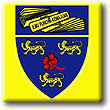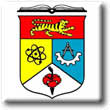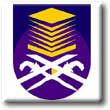|
|
| Faculty of Business Management | Faculty of Education | Faculty of Engineering | Faculty of IT | Faculty of Science |
|
Faculty of Education, Arts & Social Sciences
application to oum for faculty for Education : feass.oum.edu.my
|
|
Education Cost for Malaysian University |
||
| Field of study | Today | After 17 years |
| Information Technology |
Rm 55,000 to 100,000 |
Rm 90,000 to 160,000 |
| Engineering | ||
| Business Administration | ||
|
Education Cost for Oversea University |
||
| Field of study | Today | After 17 years |
| Information Technology | Rm 95,000 to 500,000 | Rm 155,000 to 850,000 |
| Engineering | Rm 95,000 to 500,000 | Rm 160,000 to 850,000 |
| Business Administration | Rm 95,000 to 350,000 | Rm 160,000 to 550,000 |
Retirement Planning ∑ Child Education Planning ∑ Investment in Tawau
Examples of education costs in top universities around the world :
|
Harvard University, US |
|
|
RM |
|
| Tuition Fees Per Year : | 105,000 |
| Other Expenses Per Year : | 33,000 |
| Total Per Year : | 138,000 |
| Total for 4 Years : |
552,000 |
|
University of Cambridge, UK |
|
|
RM |
|
| Tuition Fees Per Year : | 64,000 |
| Other Expenses Per Year : | 42,000 |
| Total Per Year : | 106,000 |
| Total for 4 Years : | 424,000 |
|
Monash University, Australia |
|
|
RM |
|
| Tuition Fees Per Year : | 54,000 |
| Other Expenses Per Year : | 25,000 |
| Total Per Year : | 79,000 |
| Total for 4 Years : |
316,000 |
|
University Malaya, Malaysia |
|
|
RM |
|
| Tuition Fees Per Year : | 1,200 |
| Other Expenses Per Year : | 10,000 |
| Total Per Year : | 11,200 |
| Total for 4 Years : |
44,800 |
|
|
|
|
| Next to buying a home, funding for a
child's education is the largest expenditure most parents will make. The
following are some factors that you need to take into consideration when
making education planning for your children: 1. Number of children you have. 2. Whether you want your child to attend a local or an overseas university. 3. Number of years you have before your child attends university. 4. Type of course that your child may be pursuing. 5. Current tuition fees and other type of expenses. 6. Currency exchange rate of the country your child wants to study in. 7. Expected rate of increase in education cost. 8. Your current and possible future income. 9. Investment that can be put aside for your child's university education. 10. Expected rate of return from your investment.
Key Expenses The Key is to Start Early Although it is never too late to start planning for your child's education, it is always best to start as early as possible to ensure you have sufficient funds by the time your child is ready to enroll in a university. Through the effects of compounding, a small sum of money put aside each month can grow into a significant amount. Ronald has a 4-year-old daughter, whom he would like to send to the University of Cambridge when she is 19. He plans to invest a lump sum figure to kick start her education fund while saving a fixed amount each month to make up for the balance. The first thing he needs to do is to determine the amount he requires by factoring in the inflation rate. Currently, a 4-year course in the University of Cambridge would cost about RM424.000. Assuming an inflation rate of 5 percent, the expense would have increased to RM881.920 by the time Ronald's daughter becomes 19. Current Expenses = RM424,000 Future Expenses = RM424,000 x 2.08 (15 years later) with inflation (5% per annum) = RM881,920 Ronald invests RM40.000 into an equity unit trust fund which he expects will give him annual returns of8 percent*. Using Table A, replacing inflation rate with compounding rate of returns, he can calculate how much his investment will grow to and what is his shortfall. Lump sum investment = RM40,000 Total after 15 years = RM40,000 x 3.17(with 8% annual returns) = RM126,800 Shortfall (after lump = RM881,920 - RM126,800sum investment) = RM755,120 To fund for his shortfall, Ronald plans to invest in a portfolio of stocks and unit trusts. Using Table B, he can determine how much he needs to save each month. Assuming he can get 8 percent annual returns* from his portfolio, he will need to invest RM2.190 every month in order to get RM755,120 when his daughter is ready for university. Amount needed = RM755,120 Monthly investment (with 8% = RM755,120 x 0.0029 annual returns for 15 years) = RM2,190 Financial Freedom Education Planning Software At Public Mutual, we have developed a simple do-it-yourself software that is specially designed to help you plan for your retirement. The software allows you to: - Diagnose your financial risk tolerancee, - Analyze your children's education needds, - Determine the fund required, and - Come up with suggested funding optionss. |
|
Diploma in Early Childhood Education
|
|
Bachelor of Education with Honours (TESL) Thousands of Malaysian teachers graduated with this Bachelor In Education (Honours) programme
Programme Synopsis
The integrated approach of the curriculum is designed to improve studentís knowledge, skills and attitude so as to enable him/her to stimulate pupilís intellectual interest in English language learning and acquisition and guide them towards academic success in school.
|
|
Bachelor of Education (Educational Administration) with Honours Programme Synopsis One way to upgrade the academic and management standards of the primary schools is through upgrading of the academic qualifications of the administrators, namely the Headmasters, Senior Assistants and Supervisors. Some of the existing primary-school teachers obtained their degrees from local universities through distant education, while most of the administrative staff are non-graduates. The situation could lead to administrative and psychological problems that may impinge the administration of these schools. The situation becomes worse when some of the primary-school teachers are given the chance to peruse their studies for degree programs at OUM with the cooperation of the Ministry of Education. This program has been tailor-designed for primary school administrators to ensure that they have the necessary knowledge, skills and attitude to administer the schools.
Programme Structure
Entry Requirements
Duration Financial Sources
|
|
Master of Education
Programme Synopsis The objective of the Master of Education is:
Due to the current shift towards
knowledge-based economy, there is a growing demand for highly-educated
teachersí or educational leaders to manage schools and institutions more
effectively.
Educational expertise and credibility are prerequisites of schools and institutions with raised academic standards in their need to adapt to the ever-changing educational scenarios. For more information, log on to Centre for Graduate Studies website
|
|
Doctor of Philosophy (Education)
Programme Synopsis The PhD in Education is a research-oriented degree designed for educators from schools, teacher training colleges, universities, businesses, industry, government agencies, non-governmental organizations, the military and other educational settings who need a strong research base in their careers. The intent of the programme is interdisciplinary and designed to meet the needs of educators in various positions. Students are presented with knowledge and skills in solving problems and making decisions about research that will advance their development in the profession. Opportunity is provided for students to focus on an area of study according to his or her interest, previous background and experience.
For more information, log on to Centre for Graduate Studies website There are more than 24,000 students enrolled in OUM programs. OUMís vision is to be a leader and innovator in open learning.
|
 |
The Faculty of Education of UTM is one of the leader of quality and innovative Science and Technology Education in Malaysia. The faculty emphasises on the teaching and research aspect of education. Many local and international partnerships have been formed over the years. UTM Faculty of Education offers undergraduate and postgraduate studies in Education. |
 |
The
Faculty of Education of UM
has successfully trained 20,000 over graduates. 15,000 with the Diploma in
Education, 1,000 with Master degree and 3,500 with a Bachelor in Education
degree. UM's Faculty of Education is proactive in keeping pace with the ever-changing demands in the field of education by reappraisal of programmes and courses, curriculum revisions and departmental restructuring to accommodate new changes when necessary. |
 |
The Faculty of Education of UKM was the Educational Department of the Social Science and Humanities Faculty in 1972. Then promoted to a faculty in 1986. The Faculty of Education is located at Bangi campus. The faculty comprises the Department of Educational Foundation and the Department of Methodology and Educational Practice; offering pre and post graduate programmes. |
 |
The Faculty of Education and Languages (FEL) of OUM aims at providing tertiary education in the areas of education, languages and related social sciences. OUM's faculty offers the Bachelor of Education (Hons.) in Teaching English as a Second Language (TESL). Future plans of the faculty include offering undergraduate degree programmes in teaching, early childhood education, school administration, special education and counselling psychology. |
 |
The Faculty of Education of UNISEL train students with a good command of English language. Universiti Industri Selangor (UNISEL) sees education as an industry and it recognizes the importance of English as the language of international communication. It has make English a compulsory subject for all undergraduates in Bachelor of Education (TESL) programme. |
 |
The
Faculty of Education of
UiTM was founded in November 1997 and since then has produced more
than 1000 knowledgeable and competent Bumiputra teachers who form the
backbone of Malaysia in the provision of quality education. The Faculty
continues to contribute professionally through teaching, research and
community work to the development of competent, knowledgeable and caring
teachers. The Faculty embraces the philosophy that learning is a lifelong
process. |
| The
Faculty of Education &
Social Sciences of UNITAR offers scholars in-depth knowledge of their
areas of specialisations which enable them to keep abreast with new
discoveries, inventions, innovations, insights and thinking. Every scholar
will pursue core programmes which will provide strong grounding in their
root cultures and the development of universal worldviews across
historical time, geopolitical areas and cultures. |
|
|